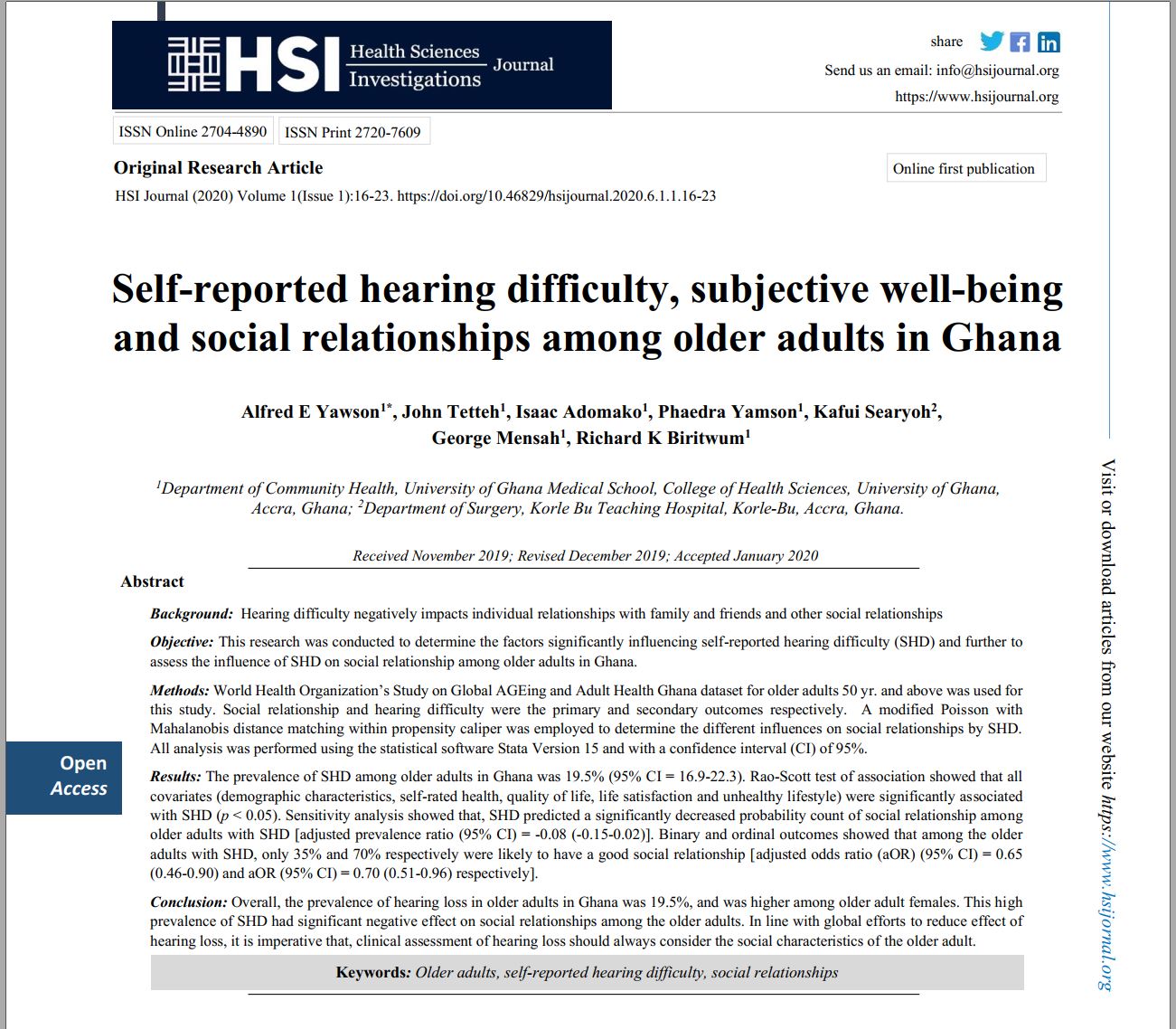Self-reported hearing difficulty, subjective well-being and social relationships among older adults in Ghana
Self-reported hearing difficulty, subjective well-being and social relationships
Abstract
Background: Hearing difficulty negatively impacts individual relationships with family and friends and other social relationships.
Objective: This research was conducted to determine the factors significantly influencing self-reported hearing difficulty (SHD) and further to assess the influence of SHD on social relationship among older adults in Ghana.
Methods: World Health Organization’s Study on Global AGEing and Adult Health Ghana dataset for older adults 50 yr. and above was used for this study. Social relationship and hearing difficulty were the primary and secondary outcomes respectively. A modified Poisson with Mahalanobis distance matching within propensity caliper was employed to determine the different influences on social relationships by SHD. All analysis was performed using the statistical software Stata Version 15 and with a confidence interval (CI) of 95%.
Results: The prevalence of SHD among older adults in Ghana was 19.5% (95% CI = 16.9-22.3). Rao-Scott test of association showed that all covariates (demographic characteristics, self-rated health, quality of life, life satisfaction and unhealthy lifestyle) were significantly associated with SHD (p < 0.05). Sensitivity analysis showed that, SHD predicted a significantly decreased probability count of social relationship among
older adults with SHD [adjusted prevalence ratio (95% CI) = -0.08 (-0.15-0.02)]. Binary and ordinal outcomes showed that among the older adults with SHD, only 35% and 70% respectively were likely to have a good social relationship [adjusted odds ratio (aOR) (95% CI) = 0.65 (0.46-0.90) and aOR (95% CI) = 0.70 (0.51-0.96) respectively].
Conclusion: Overall, the prevalence of hearing loss in older adults in Ghana was 19.5%, and was higher among older adult females. This high prevalence of SHD had significant negative effect on social relationships among the older adults. In line with global efforts to reduce effect of hearing loss, it is imperative that, clinical assessment of hearing loss should always consider the social characteristics of the older adult.


